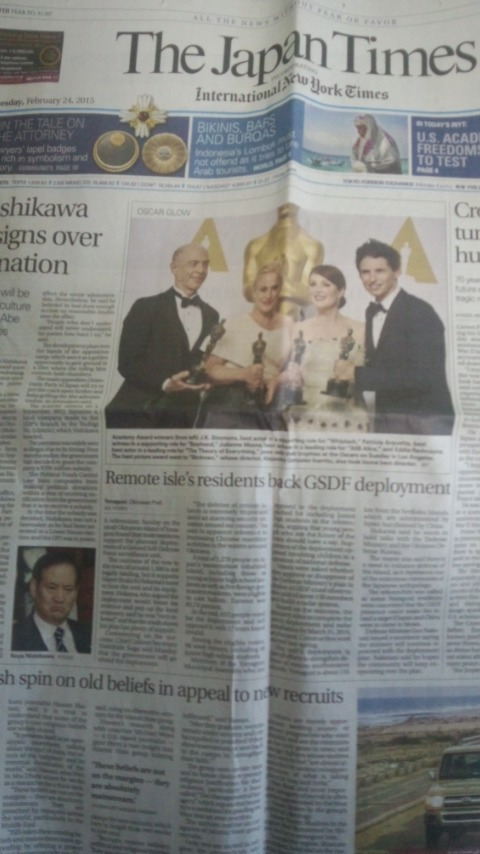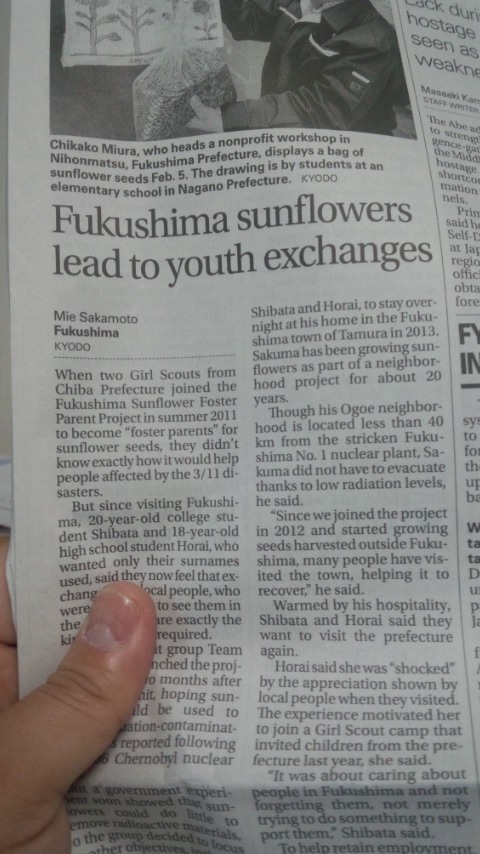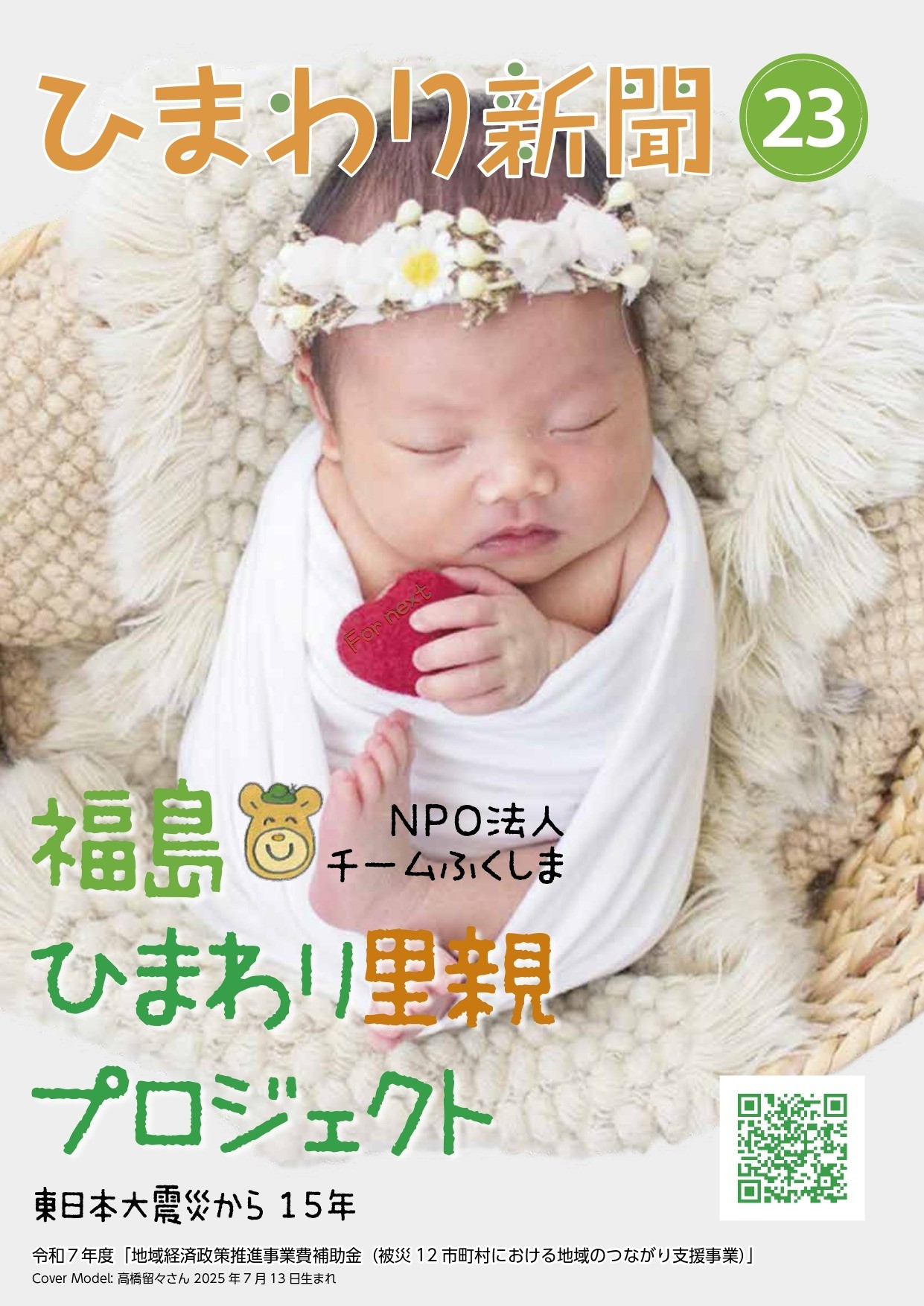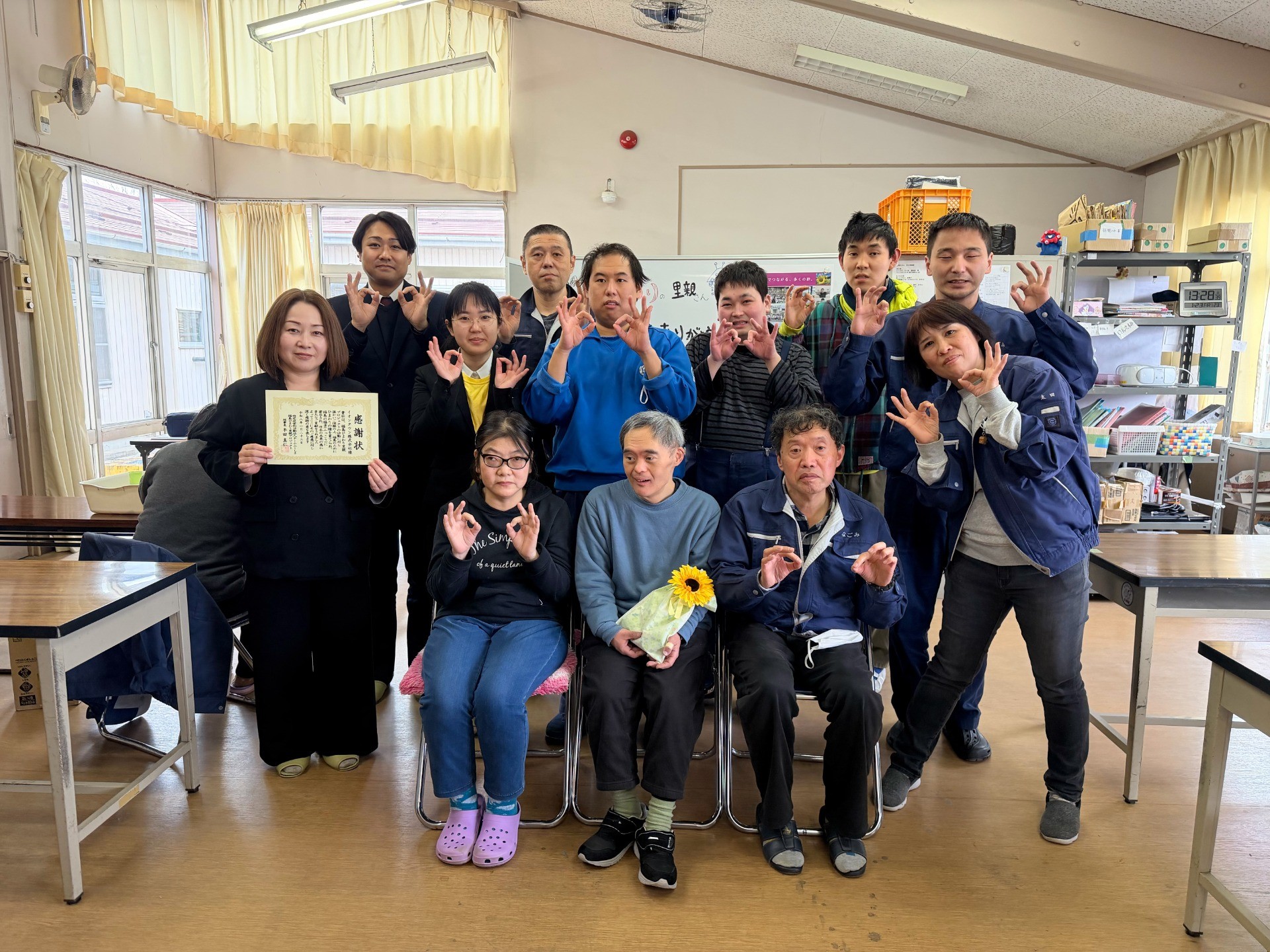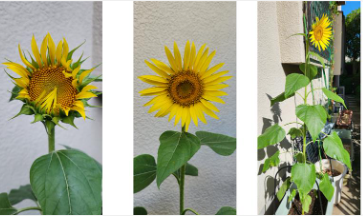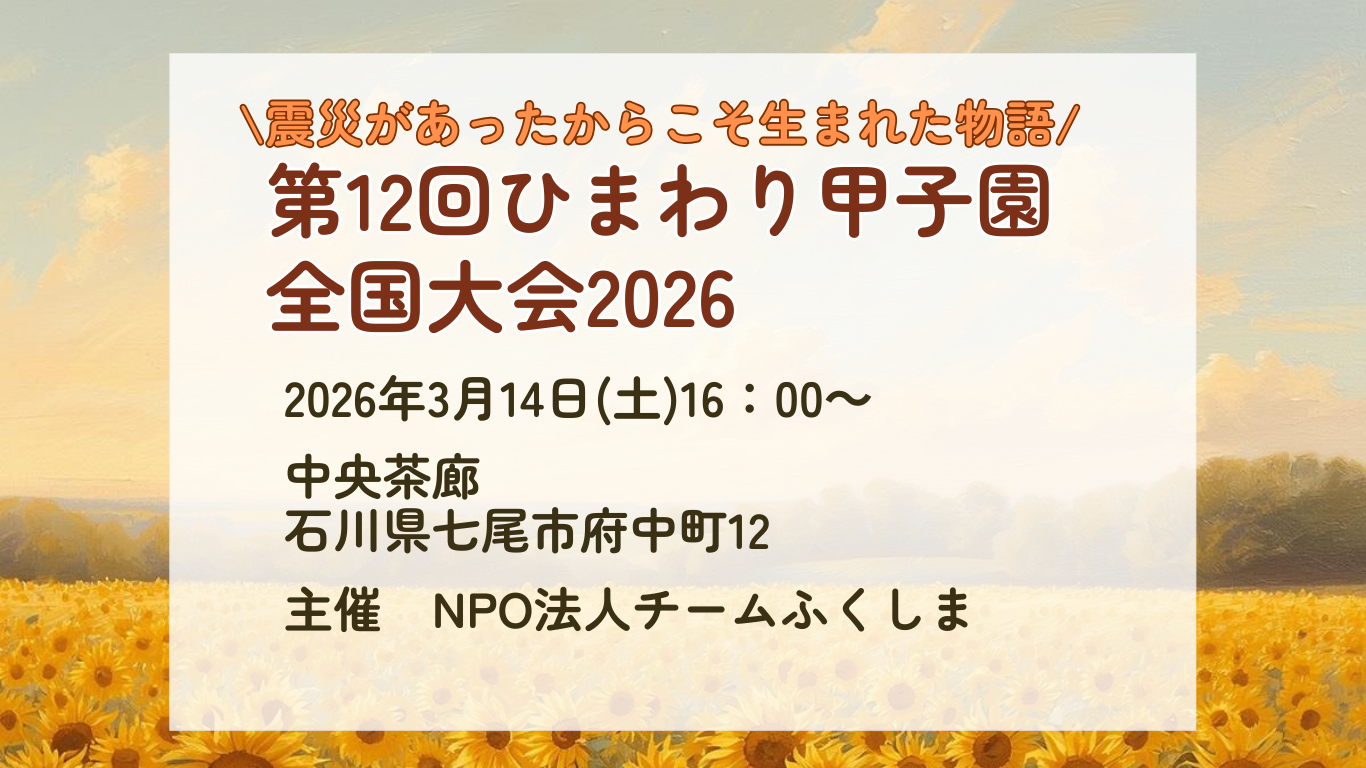震災から丸四年,
今年もたくさんの皆さんに福島に足を運んで頂くきっかけになれば嬉しいです。
ジャパンタイムス様 2月月末号に
掲載していただきましてありがとうございます。
http://www.japantimes.co.jp/news/2015/02/23/national/sunflowers-sew-grass-roots-exchanges-with-fukushima/#.VPgksjYf6mS
FUKUSHIMA -Machiko Shibata and Yuka Horai are among the girl scouts who have visited Fukushima Prefecture after becoming “foster parents” for sunflower seeds delivered from the disaster-hit region.
When the girl scouts from Chiba Prefecture joined the Fukushima Sunflower Foster Parent Project in summer 2011 to grow sunflowers and return harvested seeds to the organizer, they didn’t know exactly how it would help people affected by the 3/11 disasters.
But since visiting Fukushima, 20-year-old college student Shibata and 18-year-old high school student Horai said they now feel that exchanges with local people, who were happy just to see them in the prefecture, are exactly the kind of support required.
The nonprofit group Team Fukushima launched the project around two months after the disaster hit, hoping sunflowers could be used to cleanse radiation-contaminated soil, as reported following the 1986 Chernobyl nuclear crisis.
But a government experiment soon showed that sunflowers could do little to remove radioactive materials, so the group decided to focus on other objectives, including maintaining local employment and reviving tourism.
In the first year, it distributed more than 12,000 bags containing 5 grams of imported sunflower seeds — more than 60 kg in total — to sympathetic schools, companies, groups and individuals nationwide.
Ten tons of harvested seeds were returned the following year, the group said.
The returned seeds are being used across Fukushima to grow sunflowers, make edible oil and process used sunflower oil for fuel, said Shinji Handa, 37, who leads the group.
Shinichi Sakuma, a 63-year-old former teacher at an agricultural high school, invited nearly 20 Girl Scouts, including Shibata and Horai, to stay overnight at his home in the Fukushima town of Tamura in 2013. Sakuma has been growing sunflowers as part of a neighborhood project for about 20 years.
Though his Ogoe neighborhood is located less than 40 km from the stricken Fukushima No. 1 nuclear plant, Sakuma did not have to evacuate thanks to low radiation levels, he said.
“Since we joined the project in 2012 and started growing seeds harvested outside Fukushima, many people have visited the town, helping it to recover,” he said.
Warmed by his hospitality, Shibata and Horai said they want to visit the prefecture again.
Horai said she was “shocked” by the appreciation shown by local people when they visited. The experience motivated her to join a Girl Scout camp that invited children from the prefecture last year, she said.
“It was about caring about people in Fukushima and not forgetting them, not merely trying to do something to support them,” Shibata said.
That was one favorable outcome intended by Team Fukushima, said Handa, a native of Hiroshima.
Handa said he wants Fukushima to become a destination for school trips like his hometown, where students visit to see memorials to the victims of the 1945 atomic bombing.
To help retain employment, the group created jobs for disabled people at a workshop by enlisting them to pack sunflower seeds for shipping.
Run by nonprofit company Nagomi in Nihonmatsu, the workshop, which previously provided employment by making boxes for steamed buns, was severely hit by the 3/11 disasters, according to its head, Chikako Miura.
The workshop now receives sunflower seeds harvested in other parts of Japan, along with drawings and messages from children, under the project.
“We’re grateful we were able to secure work so we can pay salaries to our workers,” Miura said. “We all wanted to do something to revitalize Fukushima.”
The project is also helping a local firm rebuild its business in the prefecture, where radiation dosimeters can be seen in many places and decommissioning work is ongoing.
Fukushima Transportation Inc., which operates route and chartered buses and a local train line, saw tourism demand plunge after the disasters, but visitors from other prefectures have returned to ride its buses and trains since it joined the project in 2012, employee Fumie Hasekura said.
“All travel tours were canceled immediately after the disaster and employees were concerned about the future,” said Hasekura, who was working in the travel section of a subsidiary at the time.
At the request of Team Fukushima, the company replaced advertisements in its trains for about two months with around 200 messages of encouragement from people outside Fukushima, drawing a favorable reaction from passengers and attracting visitors, Hasekura said.
The company has also started using biofuel processed from waste sunflower oil to power two of its route buses.
“We would like people inside and outside Japan to come and see the reality of Fukushima, how good and bad it is, and not merely to judge it as dangerous by watching from outside,” said Minoru Chihara, head of the company’s Fukushima branch.


